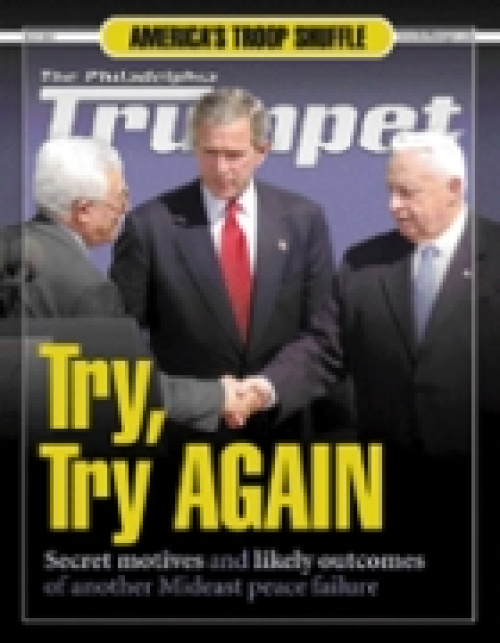The New Voice of the EU?
With the EU Convention working out the terms of a European constitution, the weightier players among the 15 EU members seem to agree that the EU must present a more unified voice to the world—in the form of an EU foreign minister. This individual would conduct the bloc’s common foreign, security and defense policies, and the new position would likely involve merging the EU’s current posts of external affairs commissioner (currently Chris Patten) and representative for foreign policy (Javier Solana).
Though the new super-position is not expected to be created until 2006, one individual is already regarded by some as the most likely candidate. In fact, oddly enough, few, if any, other names are even being brought forward. German Foreign Minister Joschka Fischer is known to have an eye on the post, as well as surprisingly significant support among other EU leaders.
Widely regarded as Germany’s most popular politician, the left-wing activist-turned-politician, now with a strong federalist bent, has remained understated about his ambitions. But Germany’s Deutsche Welle more openly admits, “Fischer … has made no secret that he yearns for a wider international stage …. Indeed, shortly after taking over the helm of the German foreign office in 1999, he made clear he hoped to eventually make his job ‘superfluous, by replacing it with a European foreign minister’” (May 2).
The move would certainly make some waves. The consequences of such a move for German Chancellor Schröder’s Red-Green coalition, which eked into power only with the help of Fischer’s popular support, are uncertain. The smaller EU accession states have their reservations about the whole idea, viewing it as yet another blow to their status in the EU and another boost to that of the big states. But their fears are not likely to stop the EU train—fueled as it is by the engines of the big states. “A well-placed diplomat recently told EUobserver that it is almost a ‘foregone conclusion’ that Berlin will get the next big post in the EU” (www.EUobserver.com, May 14).
